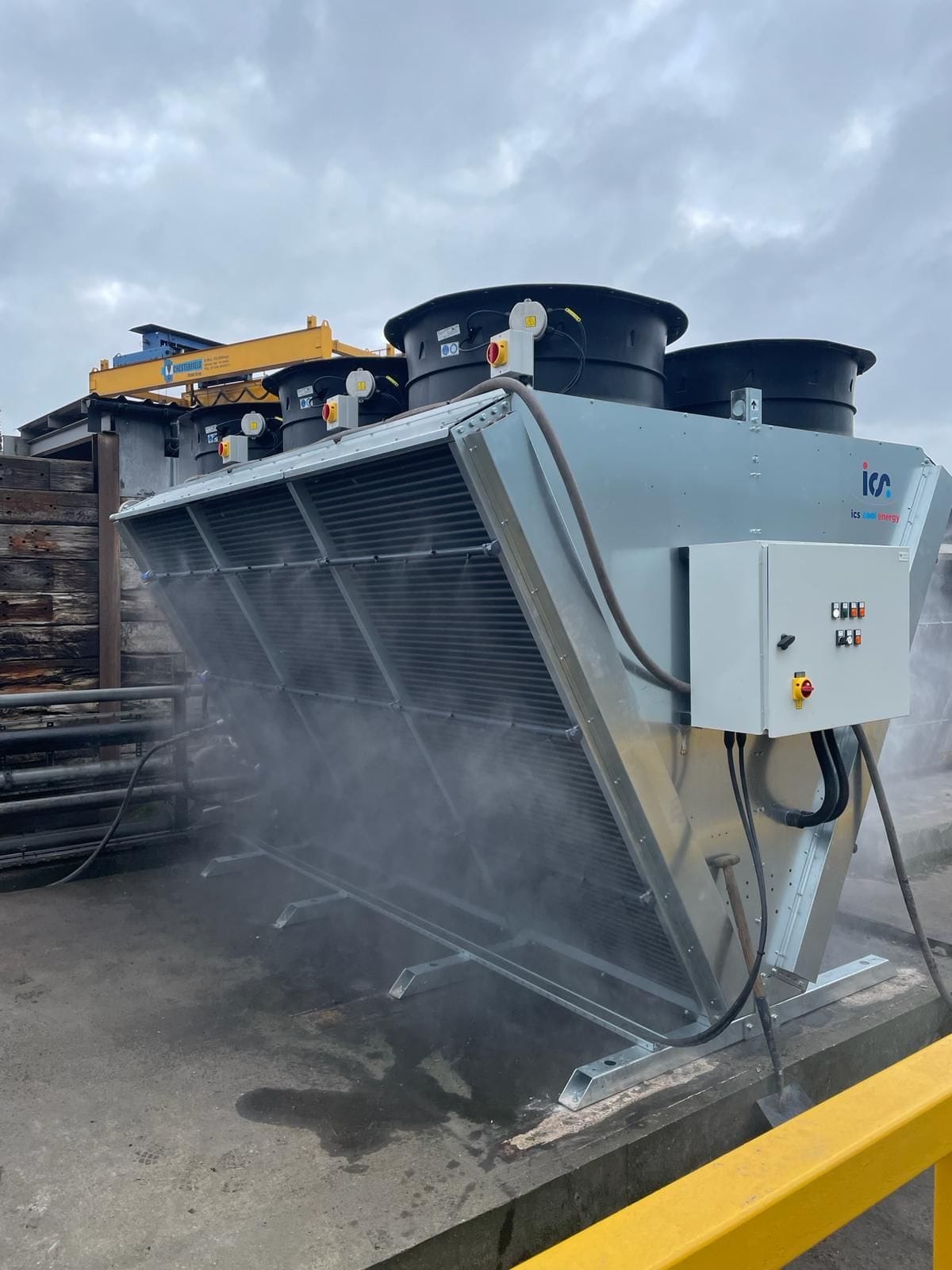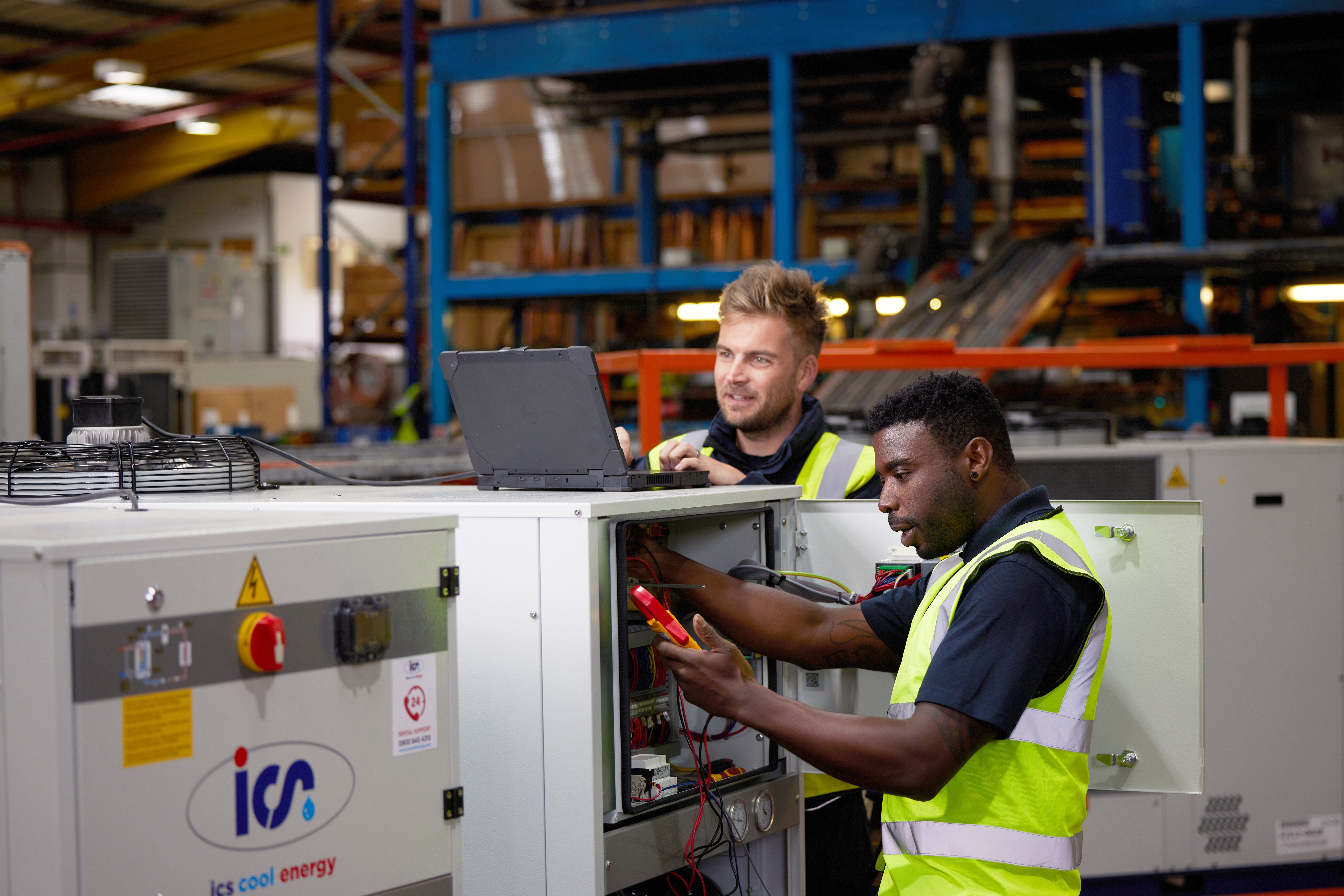Leisure Industry HVAC Chiller Restart Advice
During lockdown, the leisure sector was at a standstill, with many facilities potentially being left unattended for months. Now that the sector is starting to open again, it is important that businesses ensure that their industrial chiller is restarted safely – failing to do so could cause problems at the worst possible time.
Restarting your chiller poses additional challenges and risks compared to maintaining a planned preventative plan, this quick guide will take you through the most important things to look at.
For advice about your chiller maintenance plan or choosing an F-Gas qualified maintenance partner, call our technical team on 0800 774 7426.
Visual checks
Performing visual checks on your chiller can go a long way towards preventing a breakdown during the peak season. By performing checks that take less than two minutes, you could make a massive difference to your business and your unit’s health.
Before restarting your chiller, it is important to carry out a visual check of the unit and its surroundings. After long periods of inactivity, it’s possible that debris or dust build up could have formed, interfering with the operation of your chiller – be sure to clear any obvious blockages before restarting the unit.
It’s also important to check to see if you can see any loose mechanical parts on your unit, as these could have been damaged during the downtime.
When restarting your chiller unit, you should be checking for any unusual sounds or vibrations, investigating if the cause for the sound is not immediately apparent. If you receive any error codes, you should consult the unit’s manual to resolve them.
Glycol check
The glycol, (or anti-freeze) in your system may have degraded during the shutdown, meaning that your chiller is running on borrowed time – the water inside your unit could freeze and burst the pipework inside your system – even during warm weather.
Consult your dosage chart and ensure it’s at the right levels for your unit – and be sure to refill only with inhibited glycol – standard antifreeze isn’t designed to work inside industrial chillers and can cause serious damage to your pipework – in a matter of weeks, potentially leading to a breakdown
If you’re unsure about any of the advice in this post, please call our technical team on 0800 774 7426 and we’ll be happy to advise you on the best way to proceed.
Related Articles

November 26, 2025
Why Flexible Financing Options Matter More Than Ever
Navigating Investment in UK Manufacturing As the UK government prepares to deliver the next budget, uncertainty is the prevailing mood, felt on factory floors and...
Read More
November 13, 2025
Winter Maintenance for Adiabatic Cooling Systems. Protecting Performance All Year
Seasonal maintenance is essential for safeguarding adiabatic cooling systems against winter damage, ensuring reliable and efficient operation throughout the year. For engineers and production managers,...
Read More
October 30, 2025
Meeting the Pressures of Modern OEM Design. Why Accredited Cooling Systems Make the Difference
Tight budgets, compressed timelines, and rising expectations: how OEMs can help ensure reliability and performance of their solutions through smarter cooling partnerships. Original equipment manufacturers...
Read More